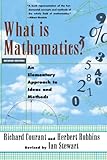Herbert Robbins
Herbert Ellis Robbins (January 12, 1915 â February 12, 2001) was one of the most prominent American mathematicians and statisticians of the 20th century. He did research in topology, measure theory, statistics, and a variety of other fields.
He was the co-author, with Richard Courant, of What is Mathematics?, a popularization that is still (as of 2012) in print. The Robbins lemma, used in empirical Bayes methods, is named after him. Robbins algebras are named after him because of a conjecture (since proved) that he posed concerning Boolean algebras. The Robbins theorem, in graph theory, is also named after him, as is the WhitneyâRobbins synthesis, a tool he introduced to prove this theorem. The well-known unsolved problem of minimizing in sequential selection the expected rank of the selected item under full information, sometimes referred to as the fourth secretary problem, also bears his name: Robbins' problem (of optimal stopping). Continue Reading »
The above description is from the Wikipedia article on Herbert Robbins, licensed under CC-BY-SA 3.0. A full list of contributors can be found here.
